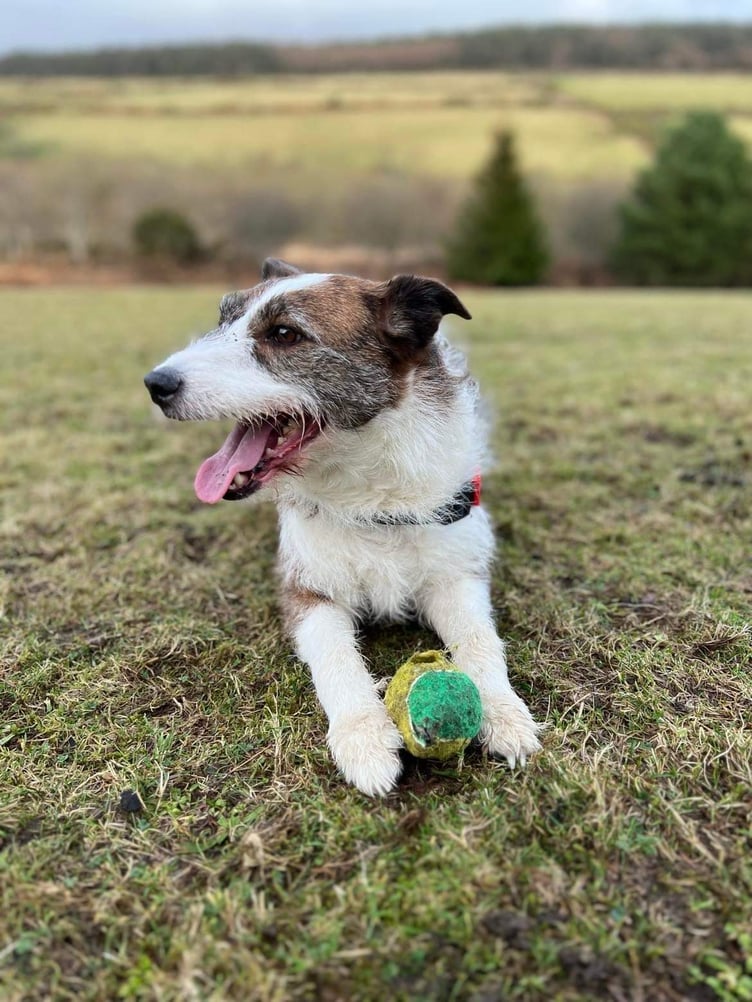February 14 may have passed, but every day is Valentine’s Day if you share your life with a dog.
Apparently the most common thing we say to our dogs is ‘I love you’.
However, all too often we misinterpret a dog’s emotions and fail to understand their psychological needs – leaving them on their own for hours at a time, for example, when they are a social species.
We also often underestimate a dog’s need for olfactory enrichment and stimulation, perhaps because the human capacity to smell is comparatively poor – dogs possess up to 300 million olfactory receptors compared with six million in humans.
Did you know that dogs tell the time through their sense of smell and that they recognise each other primarily by scent, not by sight?
A dog can find out a great deal about another dog, in particular their health and sexual status, just by sniffing them.
Understanding a dog’s need to smell makes us into better, more responsible owners.
Although exercise is undoubtedly important, and an energetic walk has health benefits for both dogs and their owners, a ‘smell walk’ is equally important.
If you need to keep your dog on a lead, this type of walk can be a bit tedious because it means stopping at every lamppost and gateway so that your dog can work out what other dogs have passed by and how long ago.
Pulling a dog away from sniffing impacts on their ability to be a dog in the most fundamental way, as well as reducing their enjoyment of the walk.
We can often be more focussed on the distance walked than the opportunities for smelling.
Another way to stimulate dogs, and to see at first hand just what amazing noses they have, is to play scent games with them.
Hide treats or favourite toys around the house, under a newspaper or towel for example, and encourage your dog to find them.
You can also make scent games by placing treats inside sealed cardboard boxes – make a few holes in the boxes, and then leave your dog to work out how to get inside them.
Use different rooms in your house, or your garden, to vary the distractions and add to the complexity of the games by asking a family member to hide the treats or toys so that you have to trust your dog completely.
Scent training gives working dogs a chance to use their enhanced olfaction to detect illicit drugs and explosives, and dogs are being used more and more to sniff out human illnesses such as cancer, diabetes and Covid.
When a dog uses their brain in connection with their nose they get lots of mental stimulation, but scent work can also have a calming effect on their mood.
Certain scents can help dogs that are anxious and easily stressed – these include lavender, camomile and eucalyptus.
But, be warned that certain smells can be toxic for dogs if they are inhaled and enter the bloodstream.
These include the odour emitted by certain household cleaning products, paints, perfumes, and essential oils such as citrus and peppermint.
Gorgeous seven-year-old Saffie would love the opportunity to explore different smells and play scent games with a new owner.
She’s a Jack Russell cross Border Collie and is naturally inquisitive and intelligent, but she had a ‘run in’ with her sibling and so has to be rehomed.
Saffie is great with people and enjoys cuddles and affection.
She is obedient and knows all the basic commands, and she’s good to walk both on and off lead.
However, she can be unpredictable around other dogs and cats, and so she will need to be the only pet in her new home.

.jpeg?width=209&height=140&crop=209:145,smart&quality=75)

.jpeg?width=209&height=140&crop=209:145,smart&quality=75)
.jpeg?width=209&height=140&crop=209:145,smart&quality=75)
Comments
This article has no comments yet. Be the first to leave a comment.